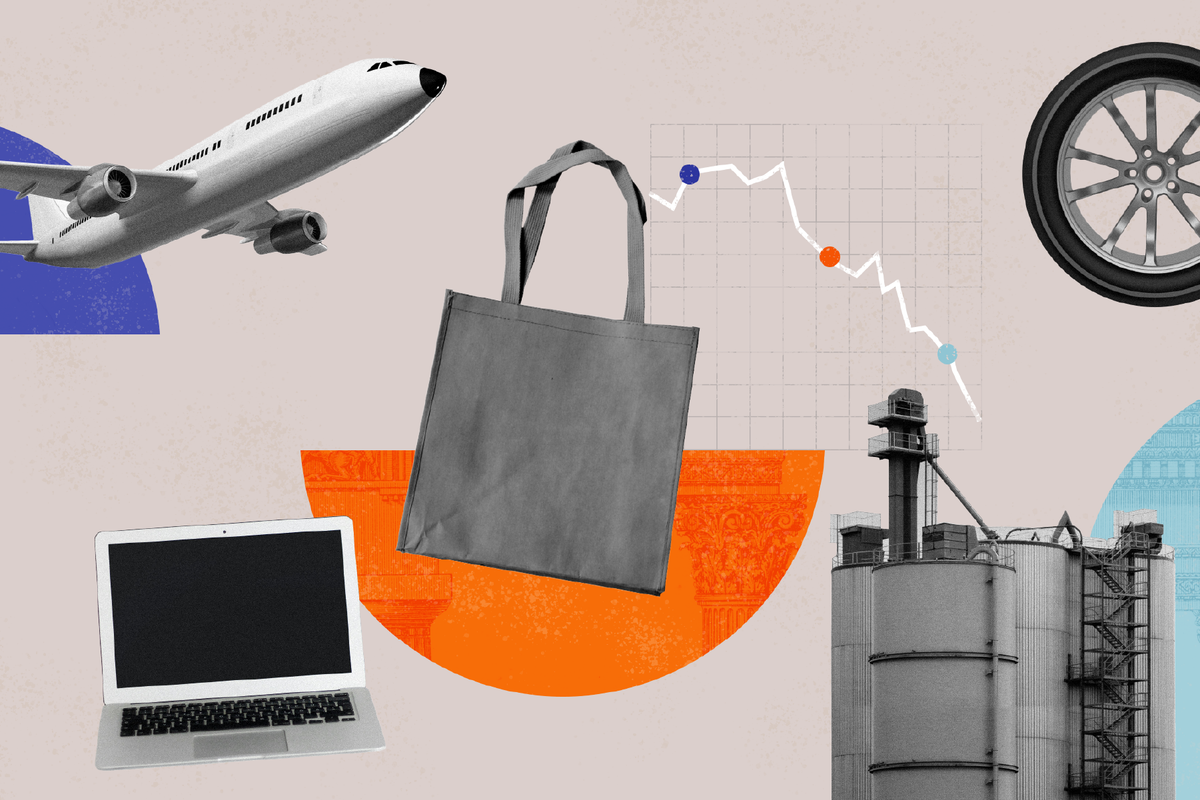
The COVID-19 (Coronavirus) panic has well and truly spread. People are worried about more than just contracting the virus (and potentially dying), with fears about food, medicine and mask shortages seeing people build up their stockpiles.
Fear is also spilling into the markets. The S&P/TSX Composite index has fallen more than 1500 points since the start of this week. Some experts even say that this could be the beginning of a recession.
As Morningstar’s director of personal finance Christine Benz says, there is the “sense that this (the coronavirus) could be more widespread than was originally thought and that it's going to affect more economies than just China's. Even if the effect were just a China effect, China's fortunes are very much tied to the rest of the world, so that is a near-term worry.”
Pent up supply
This is not to say that the fears of a market downturn came with the virus – in fact throughout the stellar run of Canadian and U.S. equities in 2019, investors were worried about a recession.
“Equities have enjoyed such a long-running rally. They're still not inexpensive, despite the near-term sell-off. So, during periods of not-cheap equity valuations, equities tend to be more sensitive to external events, like coronavirus, and they can't just shake them off,” Benz points out, adding that we've come through an extraordinarily tranquil period, so a downturn was bound to happen. “No one might have guessed what the specific catalyst would have been, but, nonetheless, it is something that we were probably bracing ourselves for.”
So what should you do with your portfolio? Though it may seem like you should be panic buying (or worse, panic selling at a loss) various securities for your portfolio, the correct response is to do nothing.
Get more than a gut check
“Emotions are the ultimate wrench in the engine of your investment decisions. Staying disciplined as an investor and sticking to your own investment philosophy through times of turbulence will lead to a better outcome than panicking and likely making the wrong decision at the absolute worst time,” says Ian Tam, Morningstar Canada’s director of investment research.
He points out that equity markets have corrected multiple times in the past and they will in the future. “Ensuring your portfolio is aligned closely with your risk tolerance and having a realistic expectation of returns is what you should be thinking about,” he says, adding that if you are already invested in a diversified asset mix you are comfortable with, stick with that and ride it out.
However, what if you do have some money to deploy for the long term? Are there any buying opportunities right now? We at Morningstar believe that when looking for stocks, you should look for competitive advantage, a margin of safety, and a cheap valuation. Here are the cheapest stocks in our coverage universe at the moment:
|
Name |
Industry |
Morningstar Star Rating |
Economic Moat |
Moat Trend |
Price / Fair Value |
|
Drug Manufacturers - Specialty & Generic |
4 |
None |
Stable |
0.24 |
|
|
Drug Manufacturers - Specialty & Generic |
5 |
None |
Stable |
0.32 |
|
|
Drug Manufacturers - Specialty & Generic |
5 |
None |
Stable |
0.40 |
|
|
Drug Manufacturers - Specialty & Generic |
5 |
None |
Stable |
0.42 |
|
|
Oil & Gas Integrated |
5 |
None |
Stable |
0.48 |
|
|
Uranium |
5 |
Narrow |
Positive |
0.54 |
|
|
Oil & Gas Integrated |
4 |
None |
Positive |
0.56 |
|
|
Oil & Gas E&P |
4 |
None |
Stable |
0.59 |
|
|
Drug Manufacturers - Specialty & Generic |
4 |
None |
Stable |
0.63 |
|
|
Agricultural Inputs |
4 |
Narrow |
Stable |
0.63 |
Morningstar Direct Data as of 02/27/2020
Did you notice anything? 8 of the top 10 undervalued stocks are in energy or cannabis, and NONE of those eight have an economic moat. The Morningstar Economic Moat Rating represents a company's sustainable competitive advantage. A company with an economic moat can fend off competition and earn high returns on capital for many years to come.
Two names stand out on this list – Mining company Cameco (CCO), and Agricultural company Nutrien (NTR). Both these companies (along with Enbridge) feature in our Canadian stock picks for retirement.
As Morningstar Investment Management’s Rob Miehm says, Cameco is one of the largest and lowest-cost producers of uranium globally and is currently a 5-Star rated stock with a narrow moat and 0.7% expected dividend yield. “We expect appreciation in uranium prices as we move forward into the new decade, with price increases driven by favourable demand/supply balance for the commodity. Demand is likely to pick up in China as it attempts to reduce its reliance on coal and the country continues with its reactor buildouts. New reactors in South Korea and India and restarts of reactors in Japan should also add to demand,” he says.
He likes Nutrien, which operates in the agricultural market and is currently a 4-star rated stock with a narrow economic moat and a 4.1% expected dividend yield. Nutrien's narrow moat is achieved by being the world's largest fertilizer producer by capacity and holding a strong competitive position in crop nutrients due to its cost-competitive position in both potash and nitrogen. They also have a network of 1,700 retail locations in North America, Australia and South America, providing a variety of products and services to growers. “Our outlook for the stock is driven in part by an expected pickup in demand starting in the latter part of 2020 leading to positive price movement in crop nutrients. While you wait for fertilizer prices to move up, the retail side of their business geared towards individual growers should help to smooth out overall company revenues given any unwanted dips in prices,” he says.






















